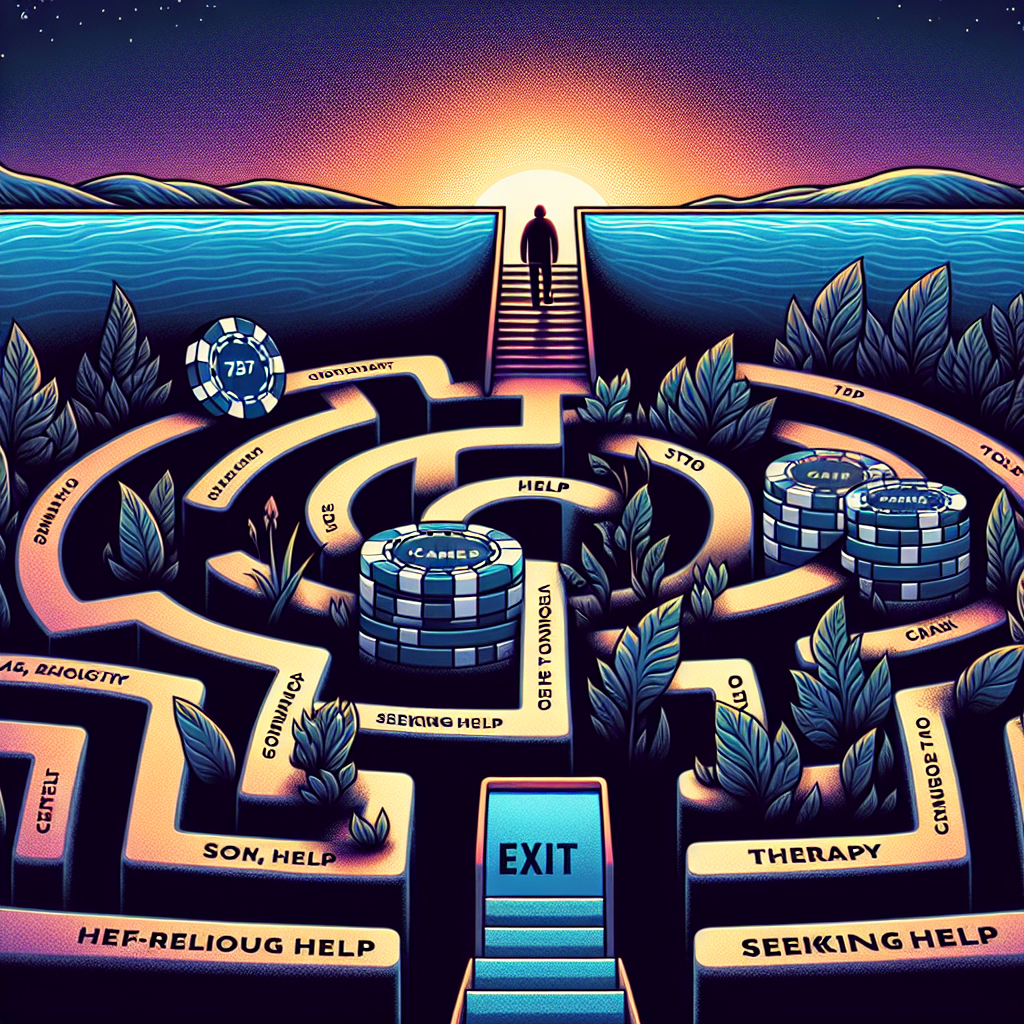-
Table of Contents

“Recovery in Progress: When Control Returns and Life Rebalances.”
Introduction
Gambling addiction recovery can be a challenging and complex process, but there are several indicators that can help determine if the recovery is working. Key signs include a noticeable reduction or complete cessation of gambling activities, improved financial stability, and the rebuilding of trust and relationships with family and friends. Additionally, individuals may experience enhanced mental and emotional well-being, including reduced anxiety and depression related to gambling. Consistent participation in therapy or support groups, adherence to a recovery plan, and the development of healthy coping mechanisms are also strong indicators of successful recovery. Monitoring these factors can provide a comprehensive understanding of the progress being made in overcoming gambling addiction.
Signs Of Progress In Gambling Addiction Recovery
Recognizing signs of progress in gambling addiction recovery can be both a challenging and rewarding journey. For those who have struggled with the grip of gambling addiction, the path to recovery is often fraught with obstacles. However, understanding the indicators of progress can provide much-needed encouragement and motivation. One of the first signs that recovery is working is a noticeable reduction in the frequency and intensity of gambling urges. This doesn’t mean that the desire to gamble will disappear overnight, but rather that the individual is better able to manage and resist these impulses. Over time, the once overwhelming compulsion to gamble diminishes, allowing for greater control over one’s actions and decisions.
Another significant sign of progress is the improvement in personal relationships. Gambling addiction often strains relationships with family, friends, and colleagues. As recovery takes hold, individuals typically begin to rebuild trust and repair the damage caused by their addiction. Open communication, honesty, and a willingness to make amends are key components in this process. The restoration of these relationships not only provides emotional support but also reinforces the individual’s commitment to staying on the path to recovery.
Financial stability is another crucial indicator of progress. Gambling addiction can lead to severe financial problems, including debt and bankruptcy. As individuals move forward in their recovery, they often develop healthier financial habits. This might include creating and sticking to a budget, paying off debts, and saving money. The ability to manage finances responsibly is a clear sign that the individual is regaining control over their life and making positive changes.
Emotional and mental well-being also play a significant role in the recovery process. Many people with gambling addiction experience feelings of guilt, shame, and anxiety. As recovery progresses, these negative emotions often give way to a more positive and balanced emotional state. Individuals may find themselves experiencing increased self-esteem, reduced anxiety, and a greater sense of inner peace. Engaging in therapy, support groups, and other forms of emotional support can be instrumental in achieving this emotional growth.
Another encouraging sign of progress is the development of new interests and hobbies. Gambling often consumes a significant amount of time and energy, leaving little room for other activities. In recovery, individuals frequently discover or rediscover passions and interests that had been neglected. Whether it’s taking up a new sport, pursuing a creative hobby, or volunteering in the community, these activities provide a healthy and fulfilling alternative to gambling.
Furthermore, the ability to set and achieve personal goals is a strong indicator that recovery is on track. Setting realistic and attainable goals, whether related to career, education, or personal growth, demonstrates a forward-thinking mindset and a commitment to building a better future. Achieving these goals, no matter how small, can boost confidence and reinforce the belief that recovery is possible.
Lastly, the support of a strong network of friends, family, and professionals is invaluable in the recovery journey. Surrounding oneself with positive influences and seeking help when needed can make a significant difference. Regularly attending support group meetings, such as Gamblers Anonymous, and maintaining open lines of communication with loved ones can provide the encouragement and accountability necessary to stay on course.
In conclusion, recognizing the signs of progress in gambling addiction recovery involves a combination of reduced gambling urges, improved relationships, financial stability, emotional well-being, new interests, goal-setting, and a supportive network. Each of these indicators serves as a testament to the hard work and dedication required to overcome addiction. While the journey may be challenging, the rewards of recovery are profound, offering a renewed sense of hope and a brighter future.
Measuring Success In Gambling Addiction Recovery
Gambling addiction recovery is a journey that requires dedication, support, and self-awareness. Understanding whether the recovery process is working can be challenging, but there are several indicators that can help measure success. Recognizing these signs can provide encouragement and motivation to continue on the path to a healthier life.
One of the primary indicators of successful gambling addiction recovery is a noticeable reduction in gambling behaviors. This can manifest as fewer visits to casinos, less time spent on online gambling platforms, or a decrease in the frequency of purchasing lottery tickets. As the urge to gamble diminishes, individuals often find themselves with more free time, which can be redirected towards positive activities and hobbies. This shift not only helps in breaking the cycle of addiction but also contributes to overall well-being.
Another significant sign of progress is improved financial stability. Gambling addiction often leads to severe financial strain, including mounting debts and depleted savings. As recovery takes hold, individuals typically begin to regain control over their finances. This might involve creating and sticking to a budget, paying off debts, and even starting to save money. The ability to manage finances responsibly is a clear indication that the individual is moving away from the destructive patterns of gambling.
Emotional and mental health improvements are also crucial markers of successful recovery. Gambling addiction can take a heavy toll on mental health, leading to anxiety, depression, and feelings of hopelessness. As recovery progresses, individuals often experience a reduction in these negative emotions. They may develop healthier coping mechanisms, such as engaging in physical exercise, practicing mindfulness, or seeking therapy. These positive changes in mental health not only enhance the quality of life but also reinforce the commitment to staying on the recovery path.
Relationships with family and friends often suffer due to gambling addiction. Rebuilding these connections is another important measure of recovery success. As individuals distance themselves from gambling, they can focus on repairing and strengthening their relationships. This might involve open communication, seeking forgiveness, and demonstrating reliability and trustworthiness. The support and understanding of loved ones can be invaluable in maintaining long-term recovery.
Additionally, setting and achieving personal goals is a strong indicator that recovery is working. These goals can be related to various aspects of life, such as career advancement, education, or personal development. The process of setting goals and working towards them fosters a sense of purpose and accomplishment, which can be incredibly motivating. Achieving these goals serves as a reminder of the progress made and the potential for a fulfilling future without gambling.
It is also important to recognize that setbacks can occur during the recovery process. However, the ability to acknowledge these setbacks, learn from them, and continue moving forward is a testament to the strength and resilience of the individual. Recovery is not a linear journey, and each step, whether forward or backward, contributes to the overall progress.
In conclusion, measuring success in gambling addiction recovery involves observing changes in behavior, financial stability, mental health, relationships, and personal achievements. These indicators, along with the ability to navigate setbacks, provide a comprehensive picture of recovery progress. By focusing on these positive changes and celebrating each milestone, individuals can find the inspiration and strength to continue their journey towards a healthier, gambling-free life.
Q&A
1. **Question:** What are some signs that gambling addiction recovery is working?
**Answer:** Signs that gambling addiction recovery is working include reduced frequency and intensity of gambling urges, improved financial stability, better relationships with family and friends, and increased engagement in healthy activities and hobbies.
2. **Question:** How can one measure progress in gambling addiction recovery?
**Answer:** Progress in gambling addiction recovery can be measured by tracking the duration of abstinence from gambling, monitoring improvements in mental and emotional health, assessing the ability to manage stress without resorting to gambling, and receiving positive feedback from support groups or therapy sessions.
Conclusion
Gambling addiction recovery is working if the individual shows a significant reduction or cessation of gambling behaviors, improved mental and emotional health, better financial stability, restored relationships, and increased engagement in healthy activities. Regular attendance in support groups, adherence to treatment plans, and the ability to manage triggers and urges are also key indicators of successful recovery.



